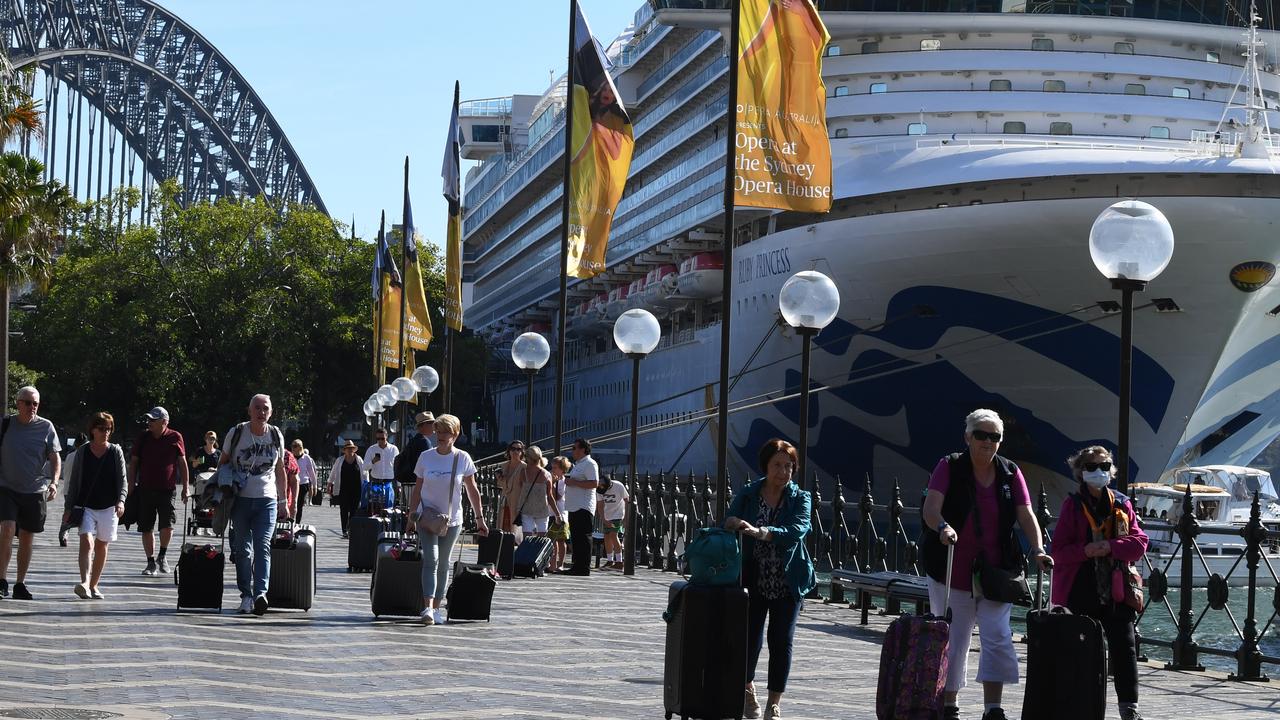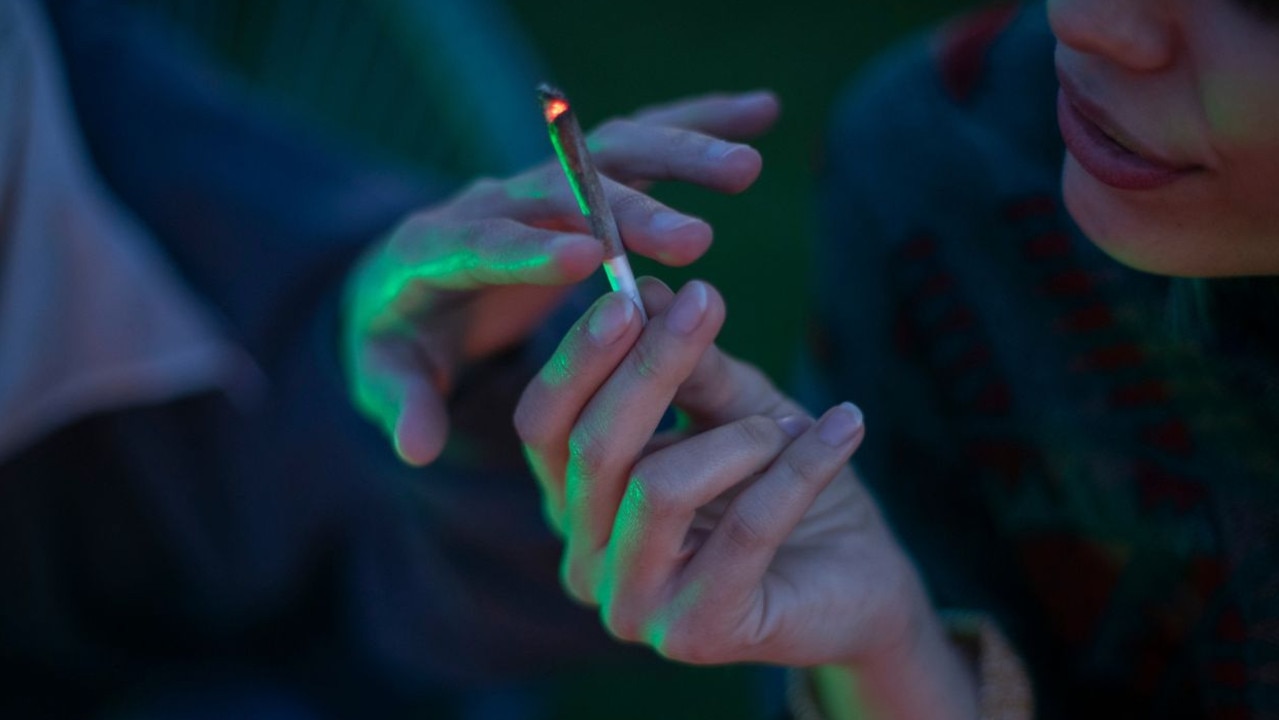Coronavirus Australia: Expert predicts when cruise ship cases will surge
An expert has predicted the dates when a surge in COVID-19 cases is likely because of deadly mistake, and it will be in just a few days time.
ABC health broadcaster Dr Norman Swan has predicted when a surge in COVID-19 cases is likely to occur, and that will take place in just a few days’ time.
The Ruby Princess cruise ship coronavirus cluster is currently incubating in the community in the days since thousands of passengers were allowed to disembark from the virus-infected ship.
“Everyone is worried about the Ruby Princess and … you may see a surge about 14 to 20 days after the Ruby Princess arrived back (on March 19),” Dr Swan told news.com.au.
By that calculation, the second infection wave would happen between April 3 and April 9.
Despite NSW Premier Gladys Berejiklian taking measures for everyone who left the ship to be contacted by health authorities, those people will have infected others.
“You need to identify every single infectious case and that includes people who don’t have symptoms,” Professor Raina Macintyre told the ABC’s 7.30 Report.
“If you don’t identify them, these people will continue to spread the infection in the community.
“Secondly, you need to then track every contact for those people.
Professor Macintyre, who is an expert in infectious diseases at the Kirby Institute, said “in general most people have nine to ten close contacts a day, spread between home and work contacts.”
Australia’s chief medical officer has suggested there are “early hopeful signs” that Australia’s introduction of tough measures to slow the coronavirus outbreak are working.
“I will give you a sense of some early hopeful signs,” Professor Brendan Murphy said at a press conference last night, adding Australia was not on track to become like America, Italy or Spain, which have been worst hit by the potentially deadly virus pandemic.
“We have an outbreak of 3978 cases at the moment. Much less than perhaps some people might have predicted some time ago, without mitigation. So there is evidence that the public health measures that we’re putting in place and the social distancing are likely to have early effect.”
While the number of confirmed cases has since passed 4000 this morning – and the national death toll sits at 17 – the rate of increase in cases has halved from 30 to 15 per cent, which is “fantastic”, said Dr Swan, who co-hosts the ABC’s Coronacast podcast.
RELATED: Follow the latest coronavirus updates
“I think what’s going on here is that the Australian public has responded well,” he said on this morning’s episode.
“People aren’t going out, they’re doing the right thing and that’s really important. And I think that’s what’s making the difference.”
But, Dr Swan warned, there’s one mistake that could lead to a setback in the progress Australians have made in slowing the increase of virus cases.
“The problem that we’ve got is that we haven’t been dealing well with new arrivals,” he said, referring to the NSW Government decision to let 2700 people disembark from the Ruby Princess cruise ship in Sydney two weeks ago despite cases of COVID-19 on-board – leading to almost 200 new cases across the nation.
“We should’ve been testing them, and we allowed that large group of people off that cruise ship and there have been other cruise ships. And I think what you’re going to see unfortunately is a surge in cases some time in the next week to 10 days, maybe even a little bit longer, which comes from these cruise ships because people will have just escaped into the community and we’ll start to see COVID-19 cases arriving from those cases.”
RELATED: Aussies who should be staying at home

The Federal Government has repeatedly said Australia has one of the highest rates of testing per head of population in the world – and one of the lowest positive test rates.
COVID-19 testing criteria was expanded last week to healthcare workers, aged care workers and people in geographically localised areas and “high risk” settings. The previous testing criteria only extended to people who had returned from overseas travel and were displaying symptoms of the potentially deadly disease or anyone who had been in direct contact with a confirmed virus case.
If the Government isn’t testing everyone in the community, however, “the reality is that most people would expect at this point that there’s significant community spread, it’s just not being detected that well”, Dr Swam said.
“The problem here is that you find what you’re looking for,” Dr Swan said.
“And what we’ve been looking for are people who’ve come back from overseas with symptoms or people who’ve got contact with somebody with COVID-19. And if that’s what you do, that’s what you find.”
RELATED: Do I have a cold, flu or coronavirus?
But, Dr Swan said, if you’re not testing everybody with symptoms in the community “then you’re not picking up who’s got COVID-19”.
“I think there’s a lot of people sitting at home with a cough and a cold who have probably got COVID-19 and they don’t know it because they don’t qualify for testing. So if you don’t test, you don’t find,” Dr Swan explained.
Dr Swan, Professor Murphy and the PM have all warned that despite the sign lockdown measures may be working, “there’s no cause for complacency”.
“We’ve had a somewhat slowing of the growth in the epidemiology curve,” Prof Murphy said last night.
“It’s not enough. We have to slow it further and we have to stop the thing that’s worrying us the most, which is community transmission.”
Prof Murphy said Australians had to change the way “we as people interact with each other” in actions that were “radical”.
“We need to all stay home unless we’re going out to shop, to do personal exercise, to go to medical appointments, or to go to work or study if you cannot work from home. So anyone who doesn’t need to be out of their home should be in the home.”



